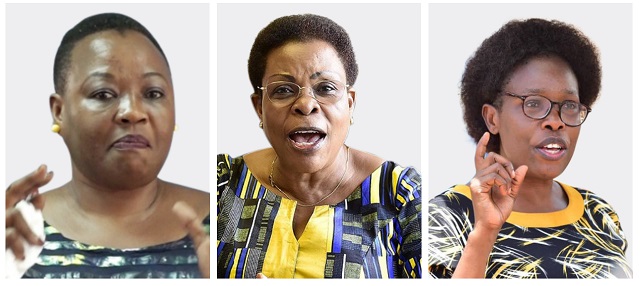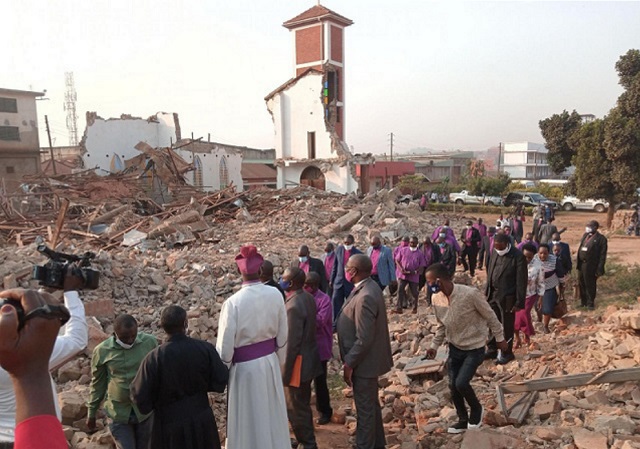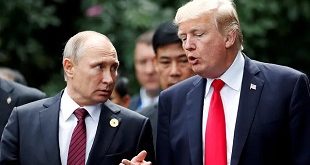
Who’re the saints, if Chairperson Byenkya is a sinner?
Kampala, Uganda | MUBATSI ASINJA HABATI | “You can accuse Beatrice Byenkya of other things but fraud is not one of them,” says Edgar Tabaro, a partner in the top law firm Karuhanga, Tabaro Associates.
Tabaro is among those who vouch for the saintly pedigree of Beatrice Nyakaisiki Byenkya, the embattled chairperson of the Uganda Land Commission, who on Jan. 11 appeared before the Anti-Corruption Court in Kampala and pleaded not guilty to counts of obstruction of search and abuse of office.
She was arraigned in the Anti-corruption Court along with three of her personal security guards.
“Fraud is not in her DNA,” Tabaro told The Independent.
Some of her supporters point at how Byenkya’s rejected the Sh5 million given to each MP in the 7th parliament as inducement to change the Constitution and remove the presidential term limits.
But there are others who swear that Byenkya is no saint. Among them are three ministers, past and present at the Ministry of Lands, and several of Byenkya’s colleagues at the Uganda Land Commission.
Members of ULC who were happy to see Byenkya interdicted include Prof Jack H. Nyeko Pen-Mogi, Tom John Fisher Kasenge, Charles K. Muhoozi, Stella Achan, Bujara Rukiika, Haji Asuman Kyafu, and Hajat Madina Nsereko.
On October 7, 2021 these members of the ULC called for chairperson Byenkya’s interdiction, accusing her of misconduct.
They were angry that that while acting on the contents of the letter containing allegations Byenkya made against some of them, police detectives on October 4, 2021 raided the ULC offices in Kampala and arrested four officials.
Indeed on October 2, 2021 Byenkya wrote to the Director of the Criminal Investigations Directorate of Uganda Police, proposing investigations into officers of the ULC.
In her letter to the police CID, Byenkya accused officials of engaging in corruption and bribery, citing overpayment of Land Fund claimants, irregularities on daily handling of taxpayers’ funds given to the entity, bribery of individuals when handling Land Fund and other business at ULC, fake land titling at ULC, non-compliance with public service rules and regulations, among others.
Acting on the Byenkya whistleblowing, CID Director Grace Akullo had commenced investigations targeting a number of officials including the ULC Secretary Barbra Imaryo.
However, the investigations hit a wall after the CID operatives Akullo had assigned developed cold feet having feared resultant confrontation from SFC officers who guard the highly connected Imaryo.
The members are also angry that on September 30, 2021 Byenkya wrote a letter to Bank of Uganda citing fraud in payments from the Land Fund.
According to the members of the ULC, chairperson Byenkya, as the head of the institution, should have resolved such matters internally instead of writing to outside agencies and damaging the reputation of the Commission. Therefore, they called for her interdiction on the grounds of misconduct.
The Commissioners also accused Byenkya of engagement in mere rumour-mongering as opposed to providing hard facts to back up her claims implicating some key ULC staffers in fraud.
That instead of blowing up things through CID and reporting to BoU, Byenkya should have quietly raised the matters internally to enable management; which she was complaining against, to inquire into them. They said best practice is to exhaust the internal mechanisms within the Commission before referring matters to Police.
They also accused her of being belligerent and incapable of team work even after the line Minister, Judith Nabakooba, organised a series of reconciliation meetings.
Byenkya was also faulted for objecting to demands by the rest of the Commissioners that the Auditor General intervenes into the crisis at ULC by conducting a forensic audit into the alleged mismanagement of the Land Fund which the Chairperson has for long been demanding to be transferred to the mother Lands Ministry in order to de-escalate tensions at ULC because, in her view, all the wrangling at the Uganda Land Commission is related to desire by some insiders to orchestrate fraud (by paying money to fictitious landlords/claimants) as others fight hard to stop the same.
On October 12, 2021, Nabakooba wrote to IGG Kamya corroborating the claims made by the commissioners and, reportedly, other whistleblowers.
On December 18 last year, the IGG (Beti Kamya) wrote to the Minister of Lands Judith Nabakooba asking for Byenkya’s interdiction to enable investigations into her conduct as had earlier been reported by whistleblowers to the IGG.
In the letter, Kamya says the allegations being made against Byenkya by ULC Commissioners are very serious and merit comprehensive inquiry by the IGG yet the same can only happen when she is not in office. That remaining in office will enable her to interfere with the investigations by the IG.
While directing Nabakooba to immediately interdict Byenkya (requiring her to step aside and stay away from office for an indefinite period), Kamya asserts that both the Constitution [Article 230(2) and the IG Act Section 14(6)] empower her to direct interdiction of anyone in the interest of smoothening investigations into that officer’s conduct.
Acting on the IGG directive, Prof Prof. Pen-Mogi Nyeko, was appointed as acting chairperson of Uganda Land Commission.

ULC mandate
The Uganda Land Commission is a semi-autonomous land verification, monitoring, and preservation organisation, established in 1995 by the 1995 Constitution under Article 238 and it’s mandated to document, verify, preserve and maintain land owned and/or administered by the government.
Uganda Land Commission manages 11,087.748 square miles of public land. This land includes land that houses all public schools, health centres, swamps, national parks, game reserves, prisons, military and police barracks, airfields among others. This is land that is being encroached by some of the powerful and well-connected persons in this country.
In 2019, President Yoweri Museveni appointed Byenkya to the chair of the Uganda Land Commission (ULC) at a time it was mired in controversy, including battling a series of court cases ranging from: unlawful evictions of people from their lands, forgery of land titles, illegal possession of land by wealthy businessmen, and rampant corruption.
Shortly before she was appointed, in 2018, Justice Catherine Bamugemereire of the Land Inquiry Commission, directed the arrest of some of ULC officials over allegations of abuse of office, neglect of duty and corruption.
Byenkya, a politician who had represented the women of Hoima District in parliament in two terms, was highly billed to change and clean the image of ULC. Indeed, soon after her appointment Byenkya began speaking tough against corruption tendencies at ULC.
In March 2020, Byenkya addressed journalists at the Uganda Media Centre where she stated that government officials are at the forefront of grabbing public land across the country.
Instead, Byenkya is today on the verge of being kicked out and land-related fraud is on an all-time high across the country.
Trouble at the Uganda Land Commission is nothing new. Long-serving former ULC Chairperson Sarah Kulata-Basangwa was kicked out in circumstances similar to what is happening to Byenkya.
President Museveni had appointed Kulata in 2007 with a specific task; to rid the country of land-related fraud by implementing the digitalisation of land titles.
But by the time she was ousted, land-related fraud and forgery of titles was at its peak.
In June 2011, the IGG used the same orders to arrest then Secretary Uganda Land Commission, KSB Mubbala. He was charged with Willful Disobedience of Orders of the IGG.
Since her appointment as chairperson of the Uganda Land Commission in 2019, Beatrice Byenkya Nyakayisiki has served under three ministers of Lands and clashed with them. When she had just been appointed, her immediate political supervisor was the then Lands Minister Betty Amongi (now current Minister for Gender and Labour). By then she and Amongi fought for control of the Land Fund which Government had just established to compensate land owners who often threaten to evict thousands of Ugandans they accuse of encroachment.
During a cabinet reshuffle, Amongi was relocated to Kampala Affairs Ministry and Beti Kamya (current IGG) replaced her.
Syndicated fraud
With Kamya in office, fault lines began to emerge in her relationship with Byenkya. Two major evictions that shook the nation had happened. Hundreds of households had been forcefully evicted from Lusanja, in Kyadondo East, Wakiso District and a church was demolished in Ndeeba in Kampala. To save face and calm the situation, President Yoweri Museveni directed that the landlords of Ndeeba and Lusanja be paid off so that the occupants can use the land.
The Ministry of Lands acted very fast to implement the presidential directive by coming up with a supplementary budget of Shs19.5 billion to compensate a one Medard Kiconco who had evicted people from Lusanja and a company named Ephraim Enterprises that demolished the church at Ndeeba. These two landlords would take over Shs7.5billion in compensation. The remaining Shs12 billion would be shared by 6 other land owners identified in different parts of the country.
Byenkya said ULC, which is mandated to handle such compensations, had not been consulted while developing the supplementary budget. She was determined to fight to assert her authority as chairperson of the Uganda Land Commission.
Soon she appeared at a parliamentary Adhoc Committee investigating the compensation of Lusanja and Ndeeba landlords and publicly disassociated herself from the Ministry of Lands supplementary budget request arguing that ULC had not verified the land compensation claimants.
Byenkya said the lists of alleged landlords supposed to share billions of government money contained `ghost’ claimants who must be weeded out first.
Byenkya then said the land compensation has become a syndicate with top officials running to landowners to crack deals. She says that there are people whose compensations have been pending since 2008 because they do not know their way around. She gave an example of Frank Ndondo, from Kabarole who has been demanding compensation worth Shs8 billion, yet he has never been paid.
She said although the senior accountant and the Senior Finance Officer at ULC are supposed to handle the Land Fund, as per the public service structure; this is not happening, and the Secretary of the Uganda Land Commission, had delegated an account assistant to manage the funds.
The Land Fund is instituted under Section 41 of the Land Act Cap 227 to be managed by the Uganda Land Commission and a Land Fund Account was opened in Bank of Uganda. But it is dormant.
Instead, ULC budgets and receives compensation funds under the development component of “support to Uganda Land Commission”.
But a report of the auditor general on the financial statements of Uganda Land Commission for the year ended June 30, 2020 warned there is a risk that funds remitted for the land fund activities through “support to Uganda Land Commission” budget line may easily be used for non-land fund related activities and the dormant Land Fund account runs a risk of being closed if it is not utilised.
Byenkya had told the Auditor General that ULC communicated to Ministry of Finance about operationalising the Land Fund effective in FY2021/2022 and she was “still awaiting action”.
To the Parliamentary Committee, Byenkya concluded by asking parliament to allow ULC take charge of the compensation process and not tag the Shs12 billion to the six individuals, or even the Church and Lusanja landowner. Byenkya added that although the Ministry of Lands then led by Beti Kamya requested a supplementary for compensation, ULC already had Shs40 billion in its budget for the same.
“When you look at the list, we did not need this money that urgently because I had already requested for Shs40 billion for compensation through the Commission budget which the Ministry of Finance later allocated to us,” she said.
Kamya and her then deputy minister Persis Namuganza were angry at Byenkya and defended the supplementary as a response to implement a presidential directive. Since then, Beatrice Byenkya was a marked woman in the books of Kamya.
In 2021 Judith Nabakooba became the Minister of Lands replacing Beti Kamya who had been dropped from cabinet. Nabakooba inherited the ministry’s (minister’s) fight with Byenkya at ULC. At the time she took over, the Uganda Land Commission was divided into camps. And almost the majority members of the commission had ganged up against Byenkya; their chairperson, questioning her leadership style and accusing her of misconduct.
This was not helped by complaints about corruption in the administration of public land which is under the watch of ULC.
In a number of petitions, the ULC Commissioners have always accused Byenkya, their chairperson, of sabotaging the Commission’s work whereas her supporters cite it as evidence of her incorruptibility.
But, Byenkya is also fighting back. She went to court and secured an interim order to stay her interdiction. She has recently been talking to the media presenting her side of the story.
Byekya said that she is facing political battles from a syndicate of powerful individuals who have encroached on public land and are now desperately working to get her out of office.
She revealed that 18% of the public land had been taken by “untouchables”, adding that the commission is grappling with many challenges, including persons with “god fathers” running the commission.
“Everybody in Uganda knows that anything connected to land is a sensitive matter, it is a matter that concerns everybody so that is why we have been in the press for wrong reasons. We work at an institution but believe me or not, we have other influences from outside. You find people with god parents. But for me I don’t have a god parent. I was just appointed by the grace of God,” she said.
Genesis of the fight
The conflict stemmed from who should have managed the Land Fund which was established to compensate some landlords claiming land occupied by thousands of Ugandans in some parts of the country. Both the Ministry of Lands and the Commission were seeking to take full charge of the land compensation process. The Land Fund handles billions of money meant to compensate absentee landlords in order to save thousands of households occupying the titled land.
In April 2021 appearing before the parliament’s adhoc committee investigating compensation in relation to land in Ndeeba on which a Church structure and homes in Lusanja were demolished, Byenkya decried gross corruption and irregularities in land compensation in the country.
To back up her accusation, Byenkya cited the compensation claim of one Natalia Namuli and indicated that the acreage is doubtful, and another case in which one same property had two compensation claimants lined up for payment; one in the names Busuluwa Julius and a another in the names of Busuluwa Julius and Colonel Fenekhansi Mugyenyi.
She said, according to their records, compensation for this property had already been paid fully, and the purported owners were seeking double compensation.
Another case was that of one Geoffrey Mugisha who sought Shs 1.5 billion Shillings, but Byenkya said the claim was false and the Shs50 million which was already advanced to the claimant was paid erroneously.
She told the committee that such irregularities in the compensation are common, with files looking fine on face value yet they are actually irregular. Byenkya also faulted the former Minister of Lands Betty Amongi, alleging she had a role in promoting the irregularities.
She said Amongi put the Land Fund under the Ministry of Lands yet it is supposed to be under the Uganda Land Commission. Byenkya said the move could have been deliberate because when she objected, the minister threatened to remove her from the office.
But Amongi denied the allegations arguing that she compensated those who fell under Presidential Directives, decisions from the cabinet and genuine claimants whose files had remained pending for long.
“I did my work at the Ministry of Lands without anything to do with corruption. All I did was to follow a presidential directive,” Amongi told the press at the time. She told the parliamentary adhoc committee that there exists a syndicate in the Commission where staff, including assistants, have interests in files and influence whose files for compensation move first.
Amidst this drama, her appointing authority President Yoweri Museveni is yet to come out to publicly comment on the fights at ULC. Everyone involved in the fight at ULC is invoking the name of the President. Perhaps, because most of the big wigs in the battle for ULC are presidential appointees: the chairperson of ULC, Minister of Lands, the IGG and the ULC commissioners.
****
 The Independent Uganda: You get the Truth we Pay the Price
The Independent Uganda: You get the Truth we Pay the Price




At this rate and given the level of widespread dishonesty, greed/avarice, corruption, cruelty and especially bearing false witness against others, through malicious prosecution and imprisonment; I wonder who in his/her right mind is still proud of being a Ugandan?
What a country to identify with! It is disgusting.